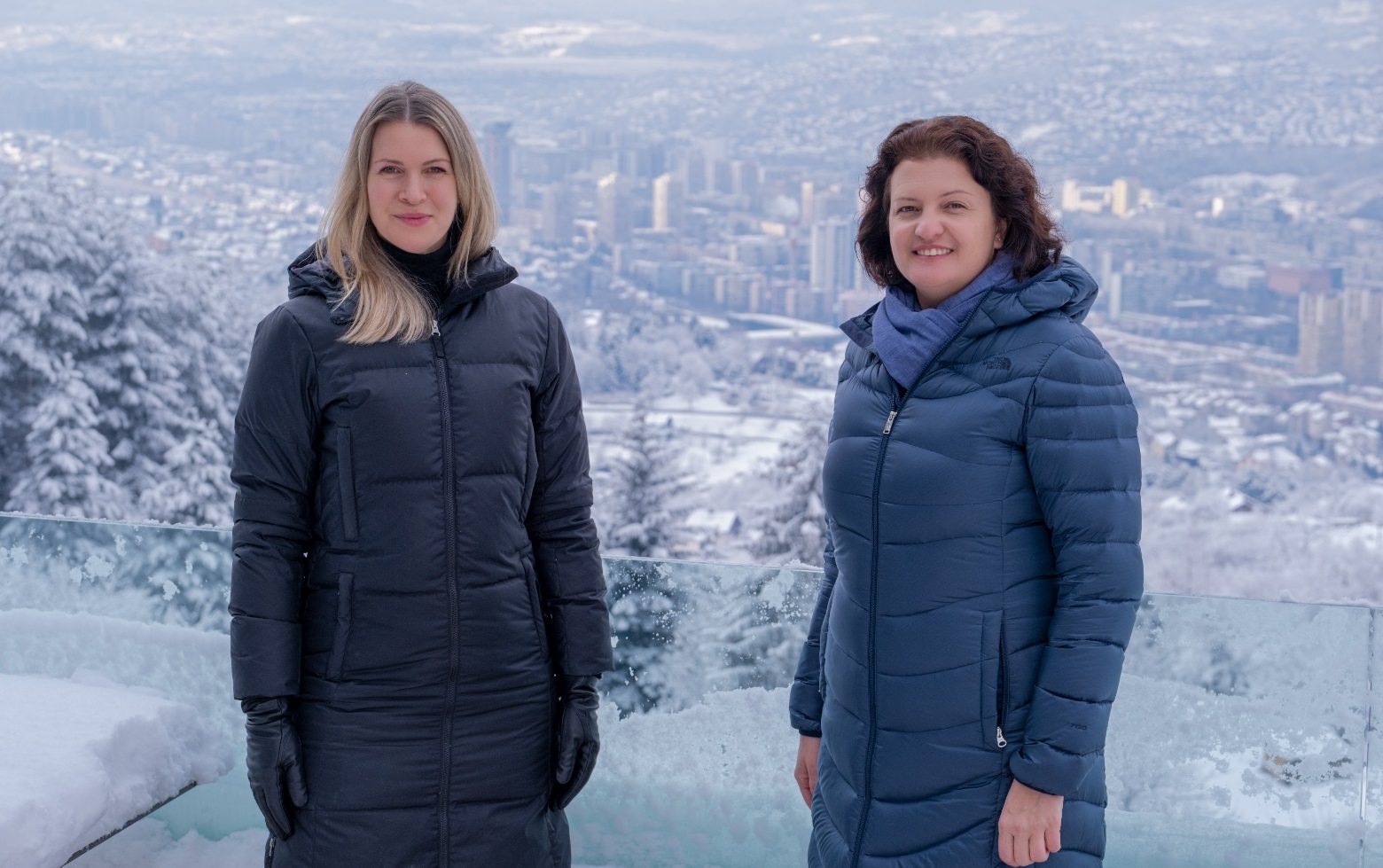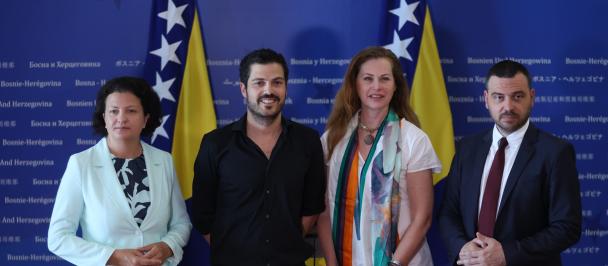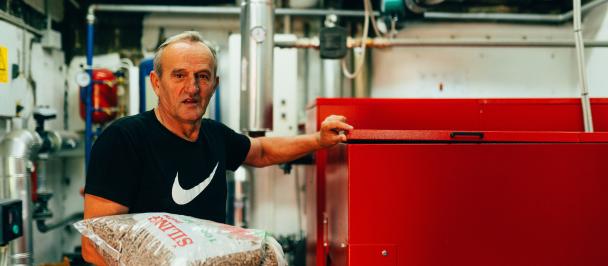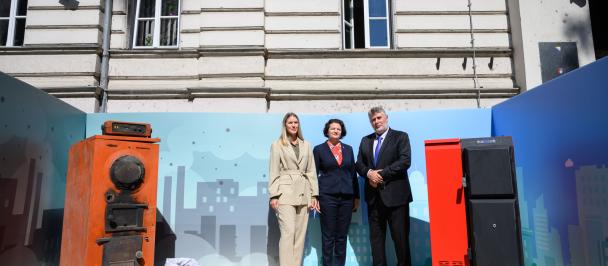Johanna Strömquist, Ambassador of Sweden to Bosnia and Herzegovina and Steliana Nedera, UNDP Resident Representative in BiH
Photo: Muamer Kolar
Sweden is allocating 7.2 million EUR for two projects aimed to reduce the environmental impact of excessive energy use and improve energy efficiency of public and residential buildings in Bosnia and Herzegovina (BiH).
The average energy consumption in public and residential buildings in BiH is over five times more than the annual energy consumption of buildings in EU countries located in similar climate conditions. As a result of excessive energy use and other pollution sources, 99.6% of the population of the country is exposed to PM2.5 air pollution which exceeds the World Health Organization (WHO) guidelines. Also, the WHO data shows that 27% of all deaths in the country are attributable to pollution. Domestic authorities can capitalize on the drive for higher energy efficiency to improve economic, health, environmental and social outlook while recovering from COVID-19 crisis.
Johanna Strömquist, Ambassador of Sweden to Bosnia and Herzegovina stated “The levels of air pollution in Bosnia and Hercegovina must be reduced to save lives and the environment. Increased energy efficiency is key in fighting air pollution. It also brings positive economic and social benefits to citizens. That is why Sweden will continue to support Bosnia and Hercegovina in scaling up energy efficiency in public and industrial buildings. The new support will also include energy efficiency of residential housing”.
Almost all buildings in the country were built without consideration of their energy performance, the poor thermal insulation, old heating, and lighting systems. Due to lack of investment, public and residential housing stock is in poor state and urgently needs repair. In addition to energy saving potential, by enhancing their energy performance, public and residential buildings also have significant potential for reduction of GHG emissions, through the implementation of fuel-switch measures.
The three-year project to be implemented by the United Nations Development Programme (UNDP) “Decarbonization in residential sector of Bosnia and Herzegovina” aims to build foundations for the development of municipal financial mechanisms for the implementation of energy efficiency measures on residential buildings while generating green jobs and reducing CO2 emissions. The activities will be rolled out in 36 municipalities.
Steliana Nedera, UNDP Resident Representative in BiH underlined “Governments must choose to invest in a green economy, powered by renewable energy rather than fossil fuels, to decelerate the devastating effects of climate change and to protect the environment. UNDP is working with Sweden to accelerate green energy and improve energy efficiency to help Bosnia and Herzegovina recover from a COVID-19 induced recession that is damaging social and economic prospects.”
Sweden in extending the funding in the amount of 5 million EUR to the “Green Economic Development” (GED) project that aims to continue improving energy efficiency and stimulating renewable energy use in public buildings and production processes in Small and medium Enterprises across the country. The project forecast to reduce carbon dioxide by 2,500 tons annually and to save the country over 0.7 million EUR in energy cost. Considering that SMEs sector in BiH consumes on average up to 35% more energy for their production processes than required, the GED project will also support SMEs by implementing the Green Finance Incentive Scheme – subsidizing of interest rates for implementation of energy efficiency/renewable energy measures.
The project will enable all levels of government to monitor, analyse and evaluate energy consumption, costs, emission, energy investments and savings data from public sector buildings while supporting the country with EU accession process, by fulfilling the Energy Performance Building Directive, Energy Efficiency Directive and Renewable Energy Directive and related energy efficiency and renewable energy targets. Energy savings on public buildings will be achieved by conducting energy efficiency measures on the building envelope, heating system and installing renewable energy sources. The project also intends to help marginalized families living in rural areas without access to electricity by installing photovoltaic solar systems in 15 households which will secure electricity and hot water.
Both projects expected to be completed by 2024, will contribute towards retrofitting minimum of 30 public buildings, six public lighting systems, 12 solar hot water systems/photovoltaic systems in public sector, and creation of 1,200 green jobs in BiH. The implementation of energy efficiency measures, will significantly contribute to the economic and social development of the country by boosting the building industry, increasing the skills of construction workers to deal with energy efficiency and renewable energy projects, reducing use of fossil-fuel energy and consequent GHG emissions, improving indoor conditions for beneficiaries, reducing public and households' energy bills, thus helping them to save their budgets, etc.

 Locations
Locations



